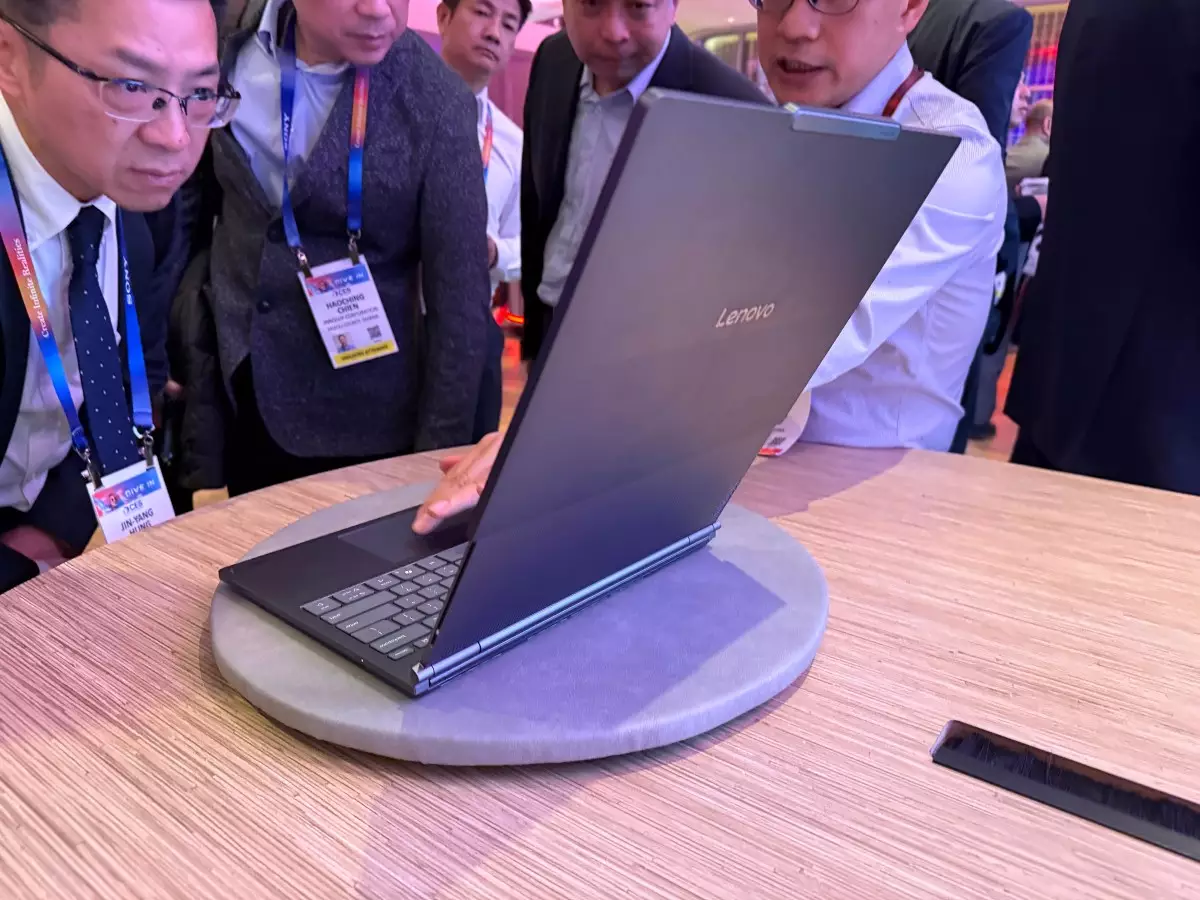In the realm of consumer electronics, particularly in personal computing, large corporations often play it safe. Traditional tech giants tend to unveil annual updates that are merely evolutionary rather than revolutionary. This cautious approach manifests in minor enhancements, such as improved screen clarity or incremental performance boosts. However, Lenovo stands out in this predominantly conservative landscape by daring to push the boundaries of innovation. Their annual showcases are not just events; they are celebrations of creativity that illustrate an unwavering commitment to thinking beyond the conventional.
The Consumer Electronics Show (CES) 2025 served as a pivotal platform for Lenovo to reveal its groundbreaking advancements in the PC sector. Among the highlights was the introduction of the ThinkBook Plus Gen 6 – a rollable laptop that signifies a new chapter in portable computing. This remarkable device showcases a screen, which expands mechanically to a generous size of 16.7 inches. The allure of this gadget isn’t solely in its impressive dimensions; it is the elegance of its functionality that captivates. With an unrolling time of only ten seconds, this product marries convenience with cutting-edge technology.
At its core, the ThinkBook Plus Gen 6 appeals to modern users’ need for flexibility and portability. The allure lies in the ability to transport a larger display without the bulk typically associated with larger laptops. This innovative design mirrors the trend of foldable smartphones – a testament to how form can follow function in groundbreaking ways. The introduction of this product encourages a reevaluation of what we expect from personal computers, suggesting that versatility and cutting-edge design need not be mutually exclusive.
CES 2025 also exhibited several products that, while still in the conceptual stage, indicate a promising future. One notable innovation was a desktop unit equipped with motion-tracking capabilities that allow it to adjust its position autonomously based on user movement. This futuristic setup echoes Lenovo’s earlier endeavors, such as the Auto Twist AI PC. It cleverly integrates sustainability into its design, utilizing materials like bamboo and corn for construction, shedding light on a critical industry pivot toward eco-friendly practices.
Lenovo’s bold initiatives at CES 2025 are emblematic of a necessary shift in an industry often resistant to change. By embracing risk and innovation, Lenovo is charting a course for other manufacturers to follow. The focus on creating products that blend functionality with sustainability signifies that the future of consumer hardware may very well hinge on this blend of creativity and responsibility. Lenovo’s vision encapsulates the spirit of modern computing, one that prioritizes user experience, ecological consideration, and pioneering design. The question remains: will other giants in the tech industry heed this call for innovation, or will they remain entrenched in their cautious ways? As we witness these advancements unfolding, the temptation to embrace a more audacious approach grows ever stronger.

